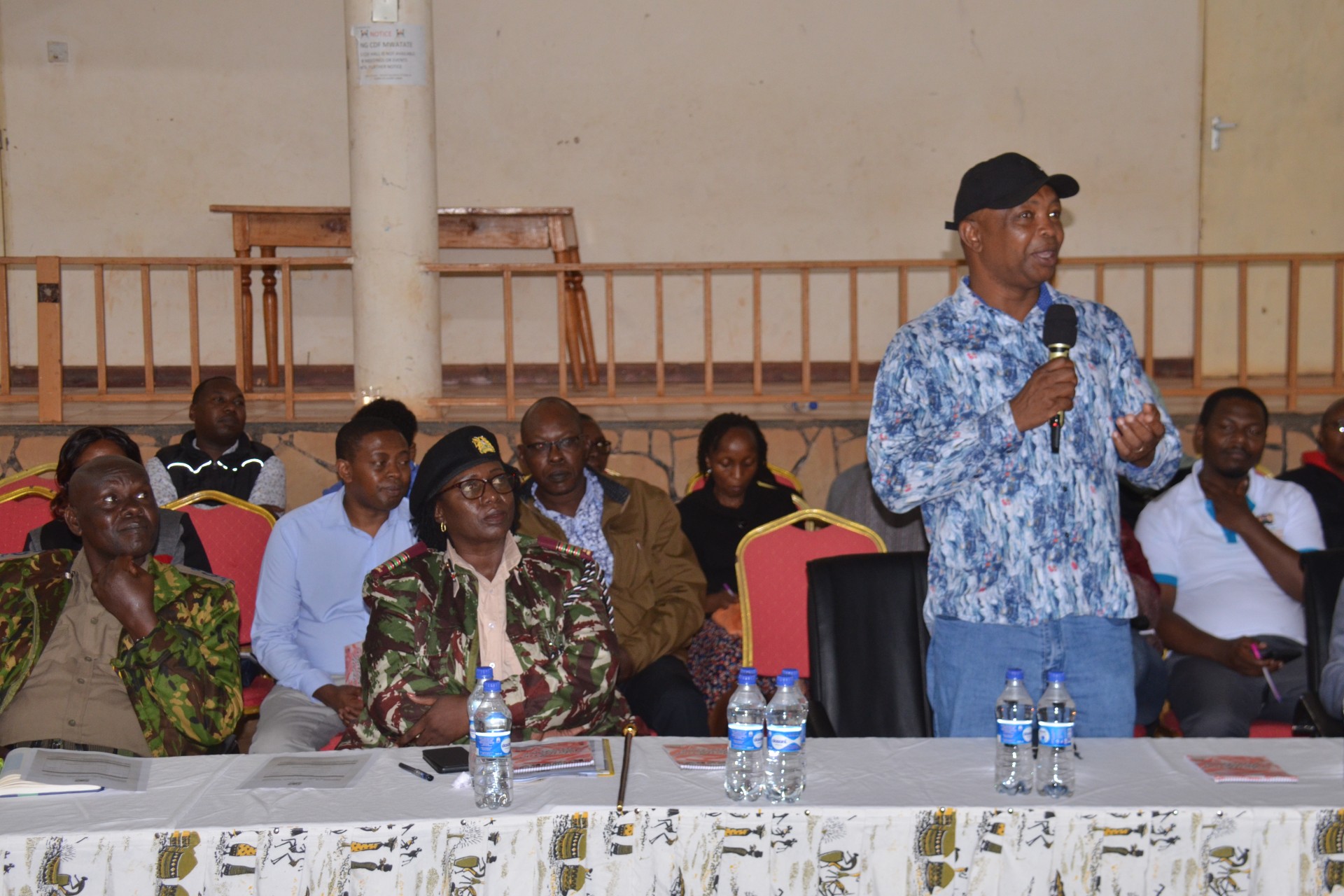In a bid to foster acceptance of development projects in the counties, the government has adopted a consultative approach with citizens at the grassroots levels in a model that places ordinary citizens at the center of national planning.
Dr. Idris Dakota, Principal Secretary (PS) State Department for Cabinet Affairs, said any development projects by the government will be determined by people in a strategy aimed at encouraging public participation and promoting transparency in resource allocation.
The PS stated that the involvement of communities in the planning and budgeting process will ultimately have the net effect of having projects being accepted and owned by the targeted beneficiaries thereby eliminating the feeling of being sidelined in nation-building.
Dr. Dakota was speaking in Mwatate on Monday during the public participation forum on the 2024/2025 medium-term budget.
“We must get your views on what you need to be done and where. The era where projects and programs were decided and imposed on you is long gone. The government needs your views and ideas for what you need to be done,” said the PS.
Noting that the last time such a forum that targeted community participation was last held in 2012 on the eve of the devolved governance system, the PS stated that the new approach will lead to widespread acceptability of development projects and reduce incidences of conflicts as residents’ claim being sidelined in planning.
Senior officials from the budget-making office at the Treasury were also present.
Mwatate MP Peter Shake hailed the move to include the citizens in planning and termed it a testament to the government’s willingness to listen. He noted that previous regimes normally brought projects and programs that had little or no public participation which triggered resistance from sections of the community.
The MP added that with the involvement of the public in planning, major obstacles including protests during the implementation of projects will be avoided.
“The community will own the projects because they proposed them. This is the way governance works,” he said.
He further added that together with other MPs from the region, they would unite to ensure the proposed projects by the residents were funded and executed. He however added that should there be budget constraints, the legislators would push for implementation of priority projects.
Some of the key projects the residents want to implement include the multi-billion Mzima 2 water project, the completion of the stalled Ikanga Airstrip, and the construction of the Maungu-Kasigau road.
The County Commissioner Josephine Onunga noted that the involvement of the community in such a process was central to the spirit of devolution where people came first. The administrator cited cases of well-meaning projects that faced hostile reception by the targeted community because the people felt they had not been involved and that the project was being imposed on them.
“The community knows best what they want. They give ideas on their priority and this allows them to embrace and own the projects,” she explained.

